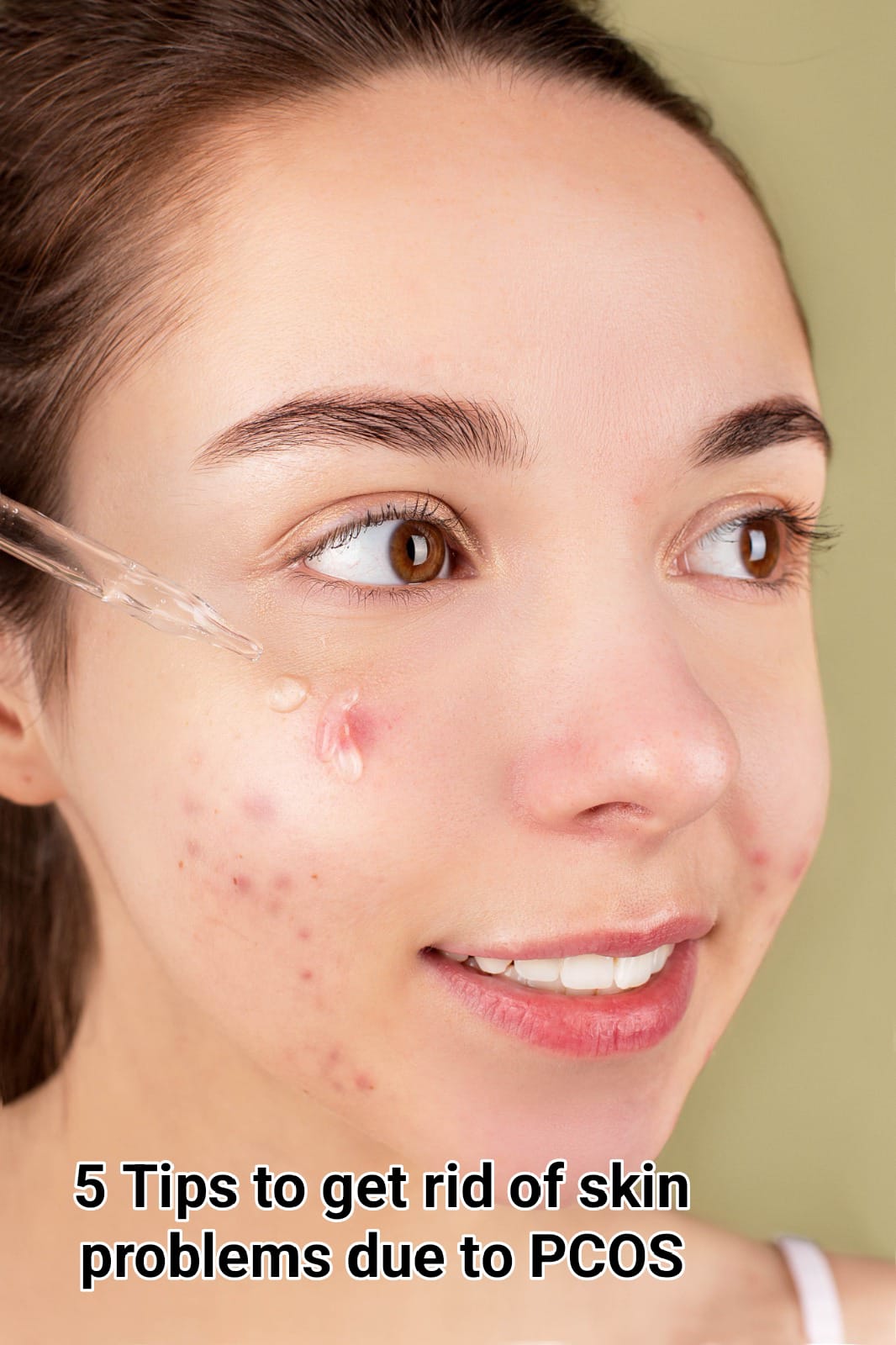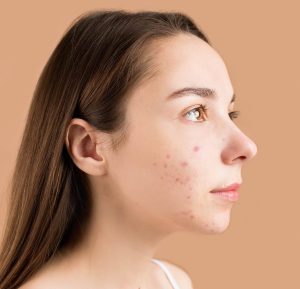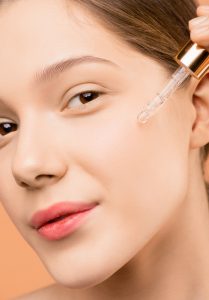Polycystic ovary syndrome (PCOS) can have various metabolic effects on adolescents. PCOS is a hormonal condition that predominantly affects a woman’s reproductive system. It is distinguished by a number of symptoms, including irregular menstruation periods, increased levels of androgens (male hormones) such as testosterone, and the occurrence of cysts on the ovaries. It is distinguished by irregular menstrual cycles, an excess of androgen hormone production (which can produce symptoms such as acne and excessive hair development), and the presence of many tiny cysts on the ovaries.
PCOS is a complicated disorder with a wide range of potential symptoms and health consequences.
Symptoms of PCOS:
You can understand the metabolic effects of PCOS only if you know whether you have PCOS or not. It is possible by checking whether you have any of the below symptoms:
- Irregular menstrual cycles
- Excessive hair growth
- Acne
- Weight gain
- Fatigue and mood changes
So if you have any of the above symptoms there are chances that you might have PCOS disorder.
Key metabolic effects of PCOS in adolescents:
Adolescents with polycystic ovarian syndrome (PCOS) may experience a variety of metabolic effects. Because PCOS manifests differently in various people, not all teenagers with PCOS will have the same symptoms. However, here are ten important metabolic effects associated with PCOS in adolescents:
- Insulin Resistance: Many teenagers with PCOS have insulin resistance, which means their cells do not respond to insulin properly. As the body attempts to compensate, this can result in greater levels of insulin in the bloodstream. Insulin resistance increases the risk of type 2 diabetes and can contribute to weight gain.
- Weight Gain and Obesity: Adolescents with PCOS are more likely to become obese, and obesity can exacerbate PCOS symptoms which results in many metabolic effects. Excess weight, particularly around the midsection, might exacerbate insulin resistance and hormonal abnormalities in PCOS patients.

- Dyslipidemia: PCOS can result in abnormalities in blood lipid profiles, such as increased triglyceride levels and lower HDL cholesterol levels. These metabolic effects such as lipid abnormalities have been linked to an increased risk of cardiovascular disease later in life.
- Hypertension: PCOS is associated with an increased risk of high blood pressure (hypertension), which is another risk factor for heart disease and other cardiovascular problems.
- Acanthosis Nigricans: Acanthosis Nigricans is a skin disorder that causes dark, thicker patches of skin to appear in body creases and folds. It is more common in people with PCOS and can be a symptom of insulin resistance.
- Gestational Diabetes: When adolescent girls and women with PCOS become pregnant, they are more likely to develop gestational diabetes. This syndrome might cause problems during pregnancy and childbirth.
- Increased Risk of Type 2 Diabetes: Insulin resistance and elevated insulin levels increase the risk of developing type 2 diabetes, especially if left untreated.
- NAFLD (Non-Alcoholic Fatty Liver Disease): NAFLD is more common in those with PCOS, especially those who are overweight or obese.
- Menstrual Irregularities: Because of hormonal imbalances, PCOS frequently produces irregular menstrual cycles or nonexistent periods. This may be related to metabolic issues.
- Increased Androgen Levels: In PCOS, higher levels of male hormones (androgens) can cause symptoms such as hirsutism (excessive hair growth) and acne which also comes under metabolic effects.
It’s crucial to remember that the metabolic effects of PCOS can vary greatly between people, and not all women with PCOS will have the same symptoms or complications. To assist and treat the metabolic effects of PCOS first we have to understand the root causes of PCOS. Because treating the problem from it’s root cause results in permanent solution.
Causes of PCOS which has metabolic effects in adolescents and adults:
PCOS is basically caused due to hormonal imbalances. There are ten modern lifestyle root causes for hormonal imbalances related to PCOS:
Food related root Causes:
- Food toxicity: Foods high in additives, preservatives, and chemicals can contribute to hormone imbalances by altering the endocrine system.
- Inflammation: Diets high in processed foods, sweets, and bad fats can cause the body to become more acidic and inflammatory, disrupting the body’s hormonal balance.
- A lack of micronutrients in our diet: Because these nutrients are essential for a variety of hormonal actions, a lack of critical vitamins and minerals may interfere with hormone balance.
- Insulin resistance: Meals with a high glycemic index can promote insulin resistance: Eating meals with a high glycemic index can create insulin resistance, which affects hormone levels, particularly insulin and androgens.
- Excess male hormones: Eating foods high in chemicals, steroids, or hormone-disrupting components may result in an increase in male hormones (androgens), which may contribute to hormonal disorders.
Exercise Related Causes:
- Sedentary lifestyle: It involves spending most of one’s time sitting down: Excessive sitting and a lack of exercise can lead to weight gain, insulin resistance, and hormonal imbalance.
- Excess body fat over the ovaries: Insulin resistance and inflammation brought on by excess body fat, especially in the area of the belly, may be linked to hormonal irregularities.
- Lack of muscle mass: Lack of physical exercise and muscle mass can affect insulin sensitivity and hormonal balance in general.
Sleep related root causes:
- Poor sleep quality (Lack of Deep Sleep): Poor or insufficient sleep can throw off the body’s hormonal balance, especially the hormones that control hunger and stress (leptin and ghrelin).

Stress related root causes:
- Chronic Stress: Prolonged exposure to high levels of stress can cause the dysregulation of various hormones, including cortisol, upsetting the body’s overall hormonal balance.
The 5 pillar strategy to reverse PCOS naturally:
Reversing the PCOS is the only solution to overcome the metabolic effects it causes in adolescents because treating the root cause of a problem gives us the permanent solution. So here’s the 5 pillar strategy to reverse PCOS naturally.
- Eat Right: Embrace living, water-rich, whole, plant-based foods that nurture our genetic potential. By opting for local and seasonal choices, we honor nature’s wisdom. Eliminating packaged and processed foods liberates us from epigenetic imprints, elevating our hormonal health.
- Move More: Embark on a journey of holistic lifestyle changes, where staying active transcends mere exercise. Embracing constant movement throughout the day optimizes epigenetic expression, igniting hormonal balance. Engage in pleasurable physical activities, dance, or even mindful walks to unlock the power of epigenetic triggers.
- Breathe Aware: As we deepen our understanding of Pranayama, the science of breath, we access a profound gateway to support gland function and harmonize hormones. Harnessing the breath’s epigenetic influence, we transcend the ordinary and elevate our hormonal well-being.
- Sleep Better: Unlock the secrets of deep sleep, a transformative practice for healing and regeneration. With the art of Yog Nidra, we embrace epigenetic potential, unearthing hormonal harmony in the realm of dreams. Rejuvenate your entire being through this exquisite dance with the epigenetic clock.
- Mind Free: Journey into the realm of emotions, thoughts, and stress resilience, where journaling, gratitude, and emotional practices become our guiding compass. Embracing epigenetic intelligence, we shift our narrative from stress to serenity, empowering our hormonal landscape.
By adopting the above 5 strategies in day to day life one can reverse PCOS naturally which probably prevents from having any of the above discussed metabolic effects.
































